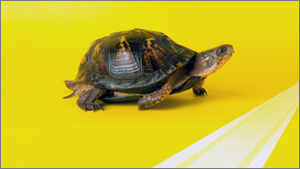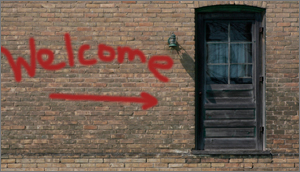 The government is a key funding source for most academic labs, so it’s not a bad idea to know how much money is actually out there. We’ve looked at the 2009 budgets at four of the major funding institutions, the National Institutes of Health (NIH), the National Science Foundation (NSF), the Department of Defense (DOD) and the Department of Energy (DOE), in order to reveal the current budget numbers.
The government is a key funding source for most academic labs, so it’s not a bad idea to know how much money is actually out there. We’ve looked at the 2009 budgets at four of the major funding institutions, the National Institutes of Health (NIH), the National Science Foundation (NSF), the Department of Defense (DOD) and the Department of Energy (DOE), in order to reveal the current budget numbers.
Flyceum: Your Science. Your Career.
We’re following in the tradition of open discussions among scientists that has resulted in important advances in both science and society.
Government Science Budgets 2009
by
Working at the Interface: Matt Bogyo
by
 Research at the interface of disciplines has spawned entirely new fields, like Chemical Biology and Chemical Neuroscience. These burgeoning fields are ripe with opportunity for scientific discovery. We spoke with Matt Bogyo, Ph.D., Associate Professor at Stanford about his journey to chemical biology and academics, both of which followed a winding path.
Research at the interface of disciplines has spawned entirely new fields, like Chemical Biology and Chemical Neuroscience. These burgeoning fields are ripe with opportunity for scientific discovery. We spoke with Matt Bogyo, Ph.D., Associate Professor at Stanford about his journey to chemical biology and academics, both of which followed a winding path.
Sleep Your Way to Better Science
by
 Although the summer heat is behind us, sleep remains a pretty hot commodity, particularly at this time of year when the academic cycle is just getting started. In many circles, people wear sleep deprivation like a badge of honor as evidence of how hard they’ve been working. But standing at the bench with bloodshot eyes, trying to remember why we’re standing there in the first place is hardly heroic…
Although the summer heat is behind us, sleep remains a pretty hot commodity, particularly at this time of year when the academic cycle is just getting started. In many circles, people wear sleep deprivation like a badge of honor as evidence of how hard they’ve been working. But standing at the bench with bloodshot eyes, trying to remember why we’re standing there in the first place is hardly heroic…
Miniprep Tips That Will Save You Time
by
The first biochemistry lab I worked in had a policy that you could not use a miniprep kit until you had mastered the “old school” way. This meant making buffers, phenol-chloroform extractions and no columns – it was an all day affair. [Continue Reading…]
Lab Etiquette: Don’t Make us Call Supernanny
by
 We wouldn’t sit down to dinner at a friend’s house and slurp up the soup using only our hands. We wouldn’t start peppering a seminar speaker with questions on their title slide, either. Why not? Simply put, it would be rude. Most situations in our lives are dictated by etiquette – a series of guidelines that suggest the “proper” behavior for a situation. The lab is no different…
We wouldn’t sit down to dinner at a friend’s house and slurp up the soup using only our hands. We wouldn’t start peppering a seminar speaker with questions on their title slide, either. Why not? Simply put, it would be rude. Most situations in our lives are dictated by etiquette – a series of guidelines that suggest the “proper” behavior for a situation. The lab is no different…
Challenges in the Scientific Curriculum
by
 Professors face a number of challenges in teaching science to undergraduate and graduate students. Some of them are relatively easy to fix, while others pose significant challenges. With research becoming increasingly interdisciplinary, should (and can) the undergraduate science curriculum evolve to reflect the emerging landscape? We spoke with Professor Teaster Baird, Jr. about the current state of education and the solutions that may rescue it.
Professors face a number of challenges in teaching science to undergraduate and graduate students. Some of them are relatively easy to fix, while others pose significant challenges. With research becoming increasingly interdisciplinary, should (and can) the undergraduate science curriculum evolve to reflect the emerging landscape? We spoke with Professor Teaster Baird, Jr. about the current state of education and the solutions that may rescue it.
Suggestions to Improve Graduate Education
by
Extraction of Limonene Using Liquid Carbon Dioxide
by
I’d heard about a mythical method for extracting limonene from orange peel using supercritical carbon dioxide. Perhaps that doesn’t sound that exciting, but the fact that a friend of mine had seen this being done in a plastic tube, in an exhibition hall at a science education conference really got me thinking. How on earth can you get liquid carbon dioxide in a plastic tube? Surely the pressure would cause the tube to explode?
Graduate School Year 5: Approaching the Finish Line
by
 In the final installment of our week-long Guide to Graduate School, we profile the final (hopefully…) full year. There’s no way to pull a Rosie Ruiz here – the only way to make it this far is to run the entire race…
In the final installment of our week-long Guide to Graduate School, we profile the final (hopefully…) full year. There’s no way to pull a Rosie Ruiz here – the only way to make it this far is to run the entire race…
Guide to Graduate School: Year 5
Coming out of the darkness of Year 4, this year is filled with a number of milestones that start to make graduation feel like a reality. As such, it can be a very exciting year. Busy, but exciting…
Graduate School Year 4: Hang in There
by
In the fourth installment of our Guide to Graduate School, we profile what is arguably the toughest year.
Guide to Graduate School: Year 4
My fourth year made Glenlivet and Advil a lot of money…
For most people, this is a brutal one. We’ve been banging our heads against the wall trying to get the project to move forward and things just aren’t working. The long hours and constant failure are taking their toll. As we enter the fourth year, papers are now top of mind and there is an increasing pressure to get them out (if we haven’t already). The reality that we will not graduate until something gets published is starting to weigh heavily on the mind.



